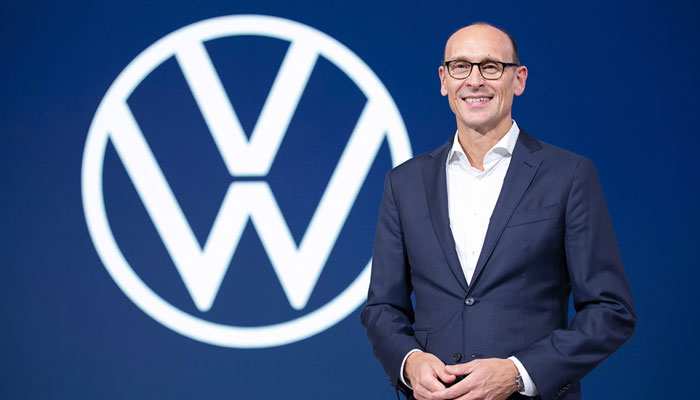Electric vehicles 10pc of all new cars sold last year
Electric-vehicle sales crossed a key milestone last year, achieving around 10% market share for the first time, driven mainly by strong growth in China and Europe
BERLIN: Electric-vehicle sales crossed a key milestone last year, achieving around 10 per cent market share for the first time, driven mainly by strong growth in China and Europe, according to fresh data and estimates reported by foreign media.
While EVs still make up a fraction of car sales in the US, their share of the total market is becoming substantial in Europe and China, and they are increasingly influencing the fortunes of the car market there as the technology goes mainstream. The surge in EV sales also contrasted with the broader car market that suffered from economic worries, inflation and production disruptions. Global sales of fully electric vehicles totalled around 7.8 million units, an increase of as much as 68 per cent from the previous year, according to preliminary research from LMC Automotive and EV-Volumes.com, research groups that track automotive sales.
Ralf Brandstätter, the head of Volkswagen AG’s China business has told reporters that electric vehicles would continue expanding fast and that China could soon reach a point where sales of conventional vehicles begin to permanently decline as plug-in vehicles take bigger market share. “Last year, every fourth vehicle we sold in China was a plug-in, and this year it will be every third auto,” Brandstätter said, adding, “We haven’t reached the tipping point yet, but we’re expecting to get there between 2025 and 2030.”
The US lags behind China and Europe in the rollout of EVs, but last year auto makers sold 807,180 fully electric vehicles in the US, a rise in the share of all-electric vehicles to 5.8 per cent of all vehicles sold from 3.2 per cent the year before. Tesla is still the world’s dominant EV maker, but conventional auto makers are shortening its lead with new electric-model launches.
In Germany, the largest auto market in Europe, electric vehicles accounted for 25 per cent of new vehicle production last year, according to VDA, the German automotive manufacturers association. In December, there were more EVs sold in the country than conventional cars. In China, which accounted for around two-thirds of global sales of fully electric cars last year, domestic manufacturers are gaining ground on traditional Western auto makers and are also beginning to expand into Europe and the US
Worldwide, Tesla maintained the top spot in a global ranking of manufacturers by sales of all-electric vehicles, followed by Chinese manufacturers BYD Co. and SAIC Motor Corp., and brands belonging to the VW group, according to a study published by Stefan Bratzel, director of the Center of Automotive Management, an automotive-research group in Germany. In the US, Ford is the second-largest maker of EVs by sales, followed by Hyundai Motor Co. and its affiliate Kia Corp. Meanwhile, General Motors Co., VW and Nissan Motor Co. lost EV market share in the US last year.
While EVs are showing signs of becoming more mainstream globally, analysts warn that repeating last year’s strong EV performance in 2023 could be difficult as economic worries weigh on consumers, and cash rebates on EVs are reduced or scrapped completely in some countries. Rising electricity prices in Europe in the wake of Russia’s attack on Ukraine have also diminished the appeal of EVs compared with gas-powered cars.
-
 It's A Boy! Luke Combs, Wife Nicole Welcome Third Child
It's A Boy! Luke Combs, Wife Nicole Welcome Third Child -
 Leading Astrophysicist Shot Dead At Southern California Home
Leading Astrophysicist Shot Dead At Southern California Home -
 Johnny Depp's Kind Gesture Towards Late 'Grey's Anatomy' Actor Eric Dane Before Death Laid Bare
Johnny Depp's Kind Gesture Towards Late 'Grey's Anatomy' Actor Eric Dane Before Death Laid Bare -
 How Princess Eugenie, Beatrice React To Andrew Arrest?
How Princess Eugenie, Beatrice React To Andrew Arrest? -
 Kylie Jenner 'convinced' Gwyneth Paltrow Is 'crushing' On Timothee Chalamet: 'It's Disrespectful'
Kylie Jenner 'convinced' Gwyneth Paltrow Is 'crushing' On Timothee Chalamet: 'It's Disrespectful' -
 Jemma Chan Reflects On 'difficult Subject Matter' Portrayed In 'Josephine'
Jemma Chan Reflects On 'difficult Subject Matter' Portrayed In 'Josephine' -
 Blood Falls In Antarctica? What Causes The Mysterious Red Waterfall Hidden In Ice
Blood Falls In Antarctica? What Causes The Mysterious Red Waterfall Hidden In Ice -
 AI Power Play: Nvidia Moves To Invest $30 Billion In OpenAI
AI Power Play: Nvidia Moves To Invest $30 Billion In OpenAI -
 Will Savannah Guthrie Ever Return To 'Today' Show? Here's What Insiders Predict
Will Savannah Guthrie Ever Return To 'Today' Show? Here's What Insiders Predict -
 Andrew Mountbatten-Windsor In A Fix Over New Disturbing TMZ Photos
Andrew Mountbatten-Windsor In A Fix Over New Disturbing TMZ Photos -
 Eric Dane Opened Up About Releasing His Memoir Just Two Months Before His Death Due To ALS Complications
Eric Dane Opened Up About Releasing His Memoir Just Two Months Before His Death Due To ALS Complications -
 Zendaya, Tom Holland Already Married? Actress Shows Off New Ring
Zendaya, Tom Holland Already Married? Actress Shows Off New Ring -
 King Charles Holds Emergency Meeting After Andrew Arrest: 'Abdication Is Not Happening'
King Charles Holds Emergency Meeting After Andrew Arrest: 'Abdication Is Not Happening' -
 Amazon Can Be Sued Over Sodium Nitrite Suicide Cases, US Court Rules
Amazon Can Be Sued Over Sodium Nitrite Suicide Cases, US Court Rules -
 'Vikings' Star Mourns Eric Dane's Death
'Vikings' Star Mourns Eric Dane's Death -
 Patrick Dempsey Reveals Eric Dane's Condition In Final Days Before Death
Patrick Dempsey Reveals Eric Dane's Condition In Final Days Before Death




